Teaching power aboard the VOR boats
Published on January 29th, 2015
The power of teaching and learning at the same time is demonstrated on the boats sailing the Volvo Ocean Race, now in port in Sanya. “The sign of thorough knowledge is the power of teaching,” said Aristotle. With a fair amount of rookies amongst the fleet and two Under-30 sailors per team, that’s also true for the Volvo. And now that they’re in China, three legs into this round-the-world race, teachers and students take the time to debrief, look back at lessons learned and discuss the next stage.
For Bouwe Bekking, it’s rather simple. “We’ve got to keep learning,” says Team Brunel’s skipper. It’s his seventh race but he’s as keen to improve as his two youngest sailors, Louis Balcaen and Rokas Milevicius. “It’s not only about the two youngsters, all sailors are learning every day, even myself. We’ve got to look at the last leg, which we sailed a bit slower than the others and finished in fifth place. We’ve got to look into why that happened and learn from this experience.”
That’s the thing about sailing as a crew, discussions emerge, and the sailors learn from each other. “We must make some effort and explain what’s happening to our Chinese sailors. They don’t always get it instinctively,” says Eric Peron, who sails with Dongfeng Race Team. The Chinese project is on a mission to bring offshore sailing to China. And they’ve sailed every leg with two Chinese rookies onboard.
“It’s good for us to keep track of our actions,” smiles Eric. “In the end, the effort we make to help them does make our work more accurate. It’s positive.” It must be, the red boat just won Leg 3 from Abu Dhabi to Sanya, a first for a Chinese team in the history of the race.
“We’re eight sailors onboard and there is enough work for 12, so they’ve got to take part! They’re part of the watch system like any other sailor, but there is always a mentor with them whether it’s a French or a Swedish sailor,” Eric explains. “We teach them by showing them how to do things. It’s an imitation process. They already have tasks they now perform automatically, instinctively, and we’re using codes so they know what they’ve got to do. They’re doing really well, but mistakes do happen and it’s normal, it’s often because we’ve changed the codes without letting them know.”
It’s about first achieving that level of instinctive action, before becoming confident enough to question them. A charismatic, experienced leader, Bouwe (Team Brunel) wants his crew to challenge him and that’s something Louis and Rokas have to learn. “They’re bright guys, and they’ve got to speak for themselves. You have to use all the brainpower you can get onboard, and trust it”, Bouwe explains, “I believe Louis and Rokas have very good thoughts, they just have to speak up. They look up to us and I don’t like that. But it’s changing.”
What sail to hoist, how much to cant the keel, which cloud to trust, what route to take, it’s about learning to sail, and learning to assess, question, and decide. “You know, sailing isn’t that difficult to learn,” adds Eric. “But the gap comes from all the available choices, the technical and tactical choices to make. That’s why the 10-plus Chinese guys involved in the project try to sail on other boats while we’re doing the Volvo – the Arabia Tour, the China Cup. That’s helping them out.”
“I was 21 when I did my first race,” grins Bouwe, now 51. “It’s good for the race to have younger blood, and a more mixed fleet. For the next race, I actually hope we change the Under-30 rule to Under-25!”
Race website – Tracking – Scoreboard – Videos


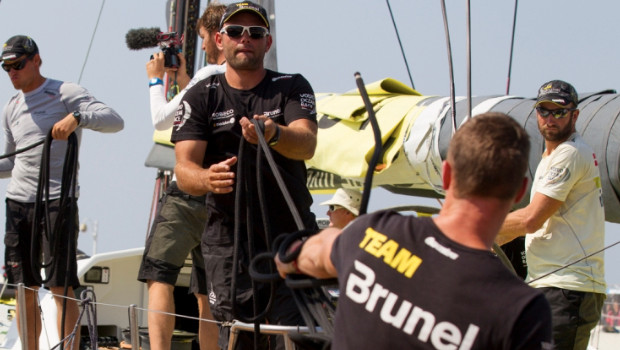


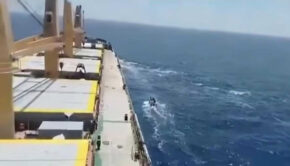
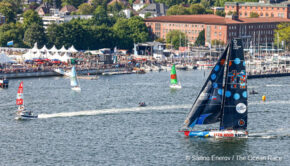
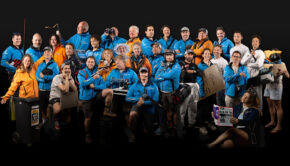
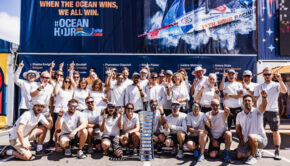
 We’ll keep your information safe.
We’ll keep your information safe.